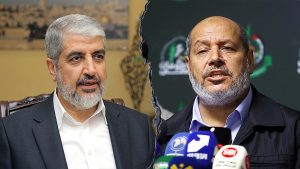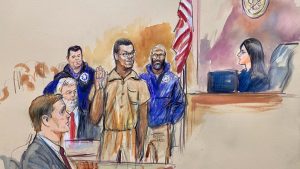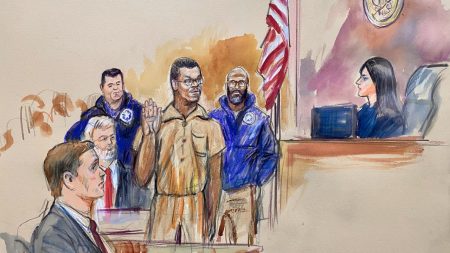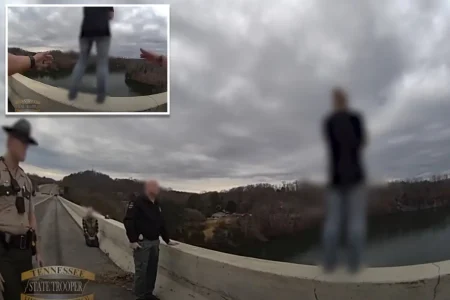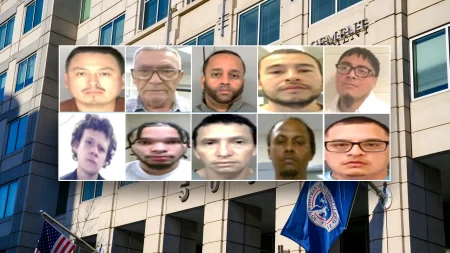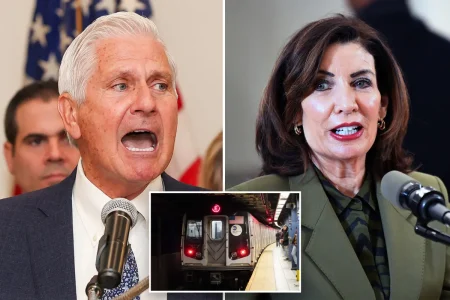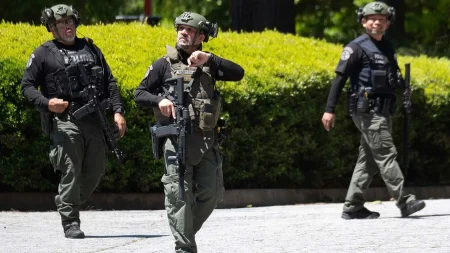Controversial Activist Hosts Free Speech Rally Amid Growing National Tensions
Robinson’s Gathering Draws Supporters and Critics in Equal Measure
In a move that has reignited debates about the boundaries between free expression and hate speech, controversial activist Tommy Robinson recently organized what he described as a “free-speech festival” for his supporters. The event, which took place against a backdrop of increasing polarization over immigration policies, represents the latest chapter in Robinson’s contentious public career as he continues to position himself as a champion for free expression while critics maintain he promotes division and xenophobia.
The gathering drew several hundred attendees from across the country, many traveling significant distances to hear Robinson speak about what he characterizes as threats to freedom of speech in modern Britain. Speaking from a makeshift stage adorned with Union Jack flags, Robinson told the crowd that “the establishment” was attempting to silence voices like his that question immigration policies. “They call us racists when we simply ask questions about how our country is changing,” Robinson declared to applause from his supporters. “This isn’t about hate—it’s about having the right to speak freely about issues that affect our communities.” The event featured several other speakers who echoed similar sentiments, framing their positions as reasonable concerns being suppressed by political correctness rather than expressions of prejudice.
Those in attendance represented a cross-section of Robinson’s support base—predominantly white working-class individuals who feel marginalized by rapid social changes and economic uncertainty. Many expressed frustration with mainstream media coverage of immigration issues and praised Robinson for “saying what others are afraid to say.” One attendee, Mark Williams, a 52-year-old factory worker from Manchester, told reporters: “I’m not against immigrants as people. I’m against a system that seems to put them ahead of folks who’ve been here all their lives.” Such sentiments reflect the complex social dynamics at play in communities where economic insecurity and cultural anxiety have become intertwined with attitudes toward immigration, creating fertile ground for Robinson’s messaging.
The Controversial Figure Behind the Movement
Robinson, whose real name is Stephen Yaxley-Lennon, has built his public persona around opposition to what he terms “Islamic extremism” and immigration policies that he claims threaten British identity. His rise to prominence began with his founding of the English Defence League (EDL) in 2009, an organization that organized street demonstrations in areas with significant Muslim populations—events that frequently descended into violence. After leaving the EDL in 2013, citing concerns about the “dangers of far-right extremism,” Robinson has reinvented himself as an independent activist and social media personality, though his fundamental positions on immigration and Islam have remained largely unchanged.
His critics, including numerous civil rights organizations and anti-racism campaigners, maintain that Robinson’s rebranding as a free speech advocate is merely a strategic pivot designed to provide a more socially acceptable veneer to what they consider fundamentally xenophobic views. “Robinson has consistently used the language of liberty and freedom to disguise what is essentially an anti-Muslim, anti-immigrant agenda,” explained Dr. Sarah Bennett, a sociologist specializing in far-right movements at the University of Birmingham. “What we’re seeing is a sophisticated understanding of how to package divisive ideas in ways that appear reasonable to those who feel disenfranchised by globalization and social change.” This tension between Robinson’s self-presentation and how his critics characterize him reflects broader societal debates about the nature of free speech and its limits.
The event itself reflected this duality. While officially billed as a celebration of free expression, much of the rhetoric focused specifically on immigration and Islam. Merchandise stands sold t-shirts with slogans about “taking back our country” alongside books critical of multiculturalism. Counter-protesters gathered nearby, holding signs condemning what they described as “hate speech masquerading as free speech.” Police maintained a significant presence throughout the day, working to keep the two groups separated and prevent potential confrontations. One officer, speaking on condition of anonymity, described the atmosphere as “tense but manageable,” noting that both sides appeared determined to avoid the violent clashes that have sometimes marred similar gatherings in the past.
Broader Implications for Public Discourse
The rally comes at a time when debates about freedom of expression have taken center stage in public discourse across Western democracies. Social media platforms have increasingly implemented content moderation policies aimed at limiting hate speech, conspiracy theories, and misinformation—measures that supporters view as necessary protections but critics see as censorship. Robinson and his supporters have frequently claimed victimhood under these policies, arguing that their views are being specifically targeted for suppression. Several speakers at the event described having social media accounts suspended or demonetized, presenting these experiences as evidence of systematic bias against conservative or nationalist viewpoints.
Media coverage of Robinson and similar figures has itself become contentious, with journalists and news organizations struggling to find the appropriate balance between reporting on significant political movements and potentially amplifying divisive rhetoric. This challenge was evident in the varied approaches taken by news outlets covering the festival, with some focusing primarily on Robinson’s controversial history and others emphasizing the free speech aspects of the gathering. Local resident Janet Cooper, who observed the event from a distance but did not participate, expressed the ambivalence many feel: “I don’t agree with a lot of what he says, but I do wonder if shutting people down completely is the right approach. It seems to make his supporters more convinced they’re right.”
Political analysts suggest that events like Robinson’s festival highlight fundamental tensions in democratic societies—between freedom of expression and protection from harmful speech, between addressing legitimate concerns about social change and preventing scapegoating of vulnerable groups. “The challenge for liberal democracies is maintaining a commitment to free expression while also fostering inclusive communities where all members feel secure,” noted political scientist Dr. Michael Reynolds. “Finding that balance becomes especially difficult when economic insecurity makes people more susceptible to narratives that blame ‘others’ for their problems.”
Looking Forward: The Evolution of Public Discourse
As Robinson’s supporters dispersed at the end of the day, both they and their opponents claimed victory of sorts—the former celebrating a peaceful demonstration of their right to gather and speak, the latter pointing to the relatively modest attendance as evidence that such views represent a minority position. What remains clear is that the fundamental questions raised by Robinson’s activism will continue to challenge British society and other Western democracies: How should societies balance free expression with protection from harmful speech? What responsibilities do media platforms have when covering controversial figures? And perhaps most importantly, how can legitimate concerns about rapid social change be addressed without descending into xenophobia?
The answers to these questions will likely emerge through ongoing democratic engagement rather than through the kind of polarized demonstrations represented by Robinson’s festival. Community leaders, policymakers, and citizens across the political spectrum face the complex task of creating spaces for genuine dialogue about immigration, national identity, and social cohesion—conversations that acknowledge real anxieties while rejecting simplistic scapegoating. As one counter-protester, university student Aisha Khan, put it: “Free speech isn’t just about having the right to say whatever you want. It’s about creating a society where everyone has a voice in the conversation about our shared future.”
What Robinson’s free speech festival ultimately revealed was not simply the continued presence of anti-immigrant sentiment in British society, but the deeper struggles of a democracy attempting to navigate profound social changes while maintaining its core values. As similar movements gain and lose momentum across Europe and North America, the tension between freedom and inclusion remains a defining challenge of our time—one that requires thoughtful engagement rather than mere confrontation.
